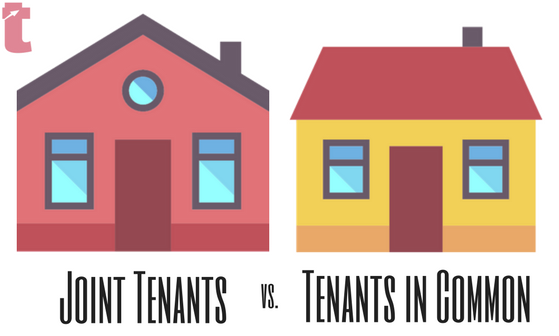|
One of the most common questions I've been asked most about Power of Attorney (POA) is, what if I don't have a POA and I become incapable of making decisions for myself? My answer is - you're going to create a lot of trouble for your family or whoever needs to help you to manage your affairs.
When an adult needs help managing their affairs because of mental incapability due to an illness, accident, disability or diseases associated with aging, their judgment may be impaired in some way. They may forget to pay bills or put money away and forget where it is. The adult may also be confused about banking, investments, property, and personal belongings. However, they may have planned ahead and authorized someone else to make decisions and managing their financial and legal affairs through an enduring power of attorney. But what if the adult does not have a POA? British Columbia has been able to develop one of the best land survey and title registration systems in the world.
British Columbia, including the colonies before the province came into existence, has always maintained a system for recording ownership and interests in private land. For a short while, the colonies maintained Deeds Registries. However, a Deeds Registry results in a complicated, unreliable system for recording interests in land. In order to gain an opinion on ownership of interests in land, an unbroken chain of documentary evidence over long periods of time or possibly from the original granting of the land from the Crown is required. If any one of those documents was not properly executed, or if all documents in the chain cannot be obtained, then a shadow of doubt is cast upon the claim of ownership. The British Columbia government has launched the Condo and Strata Assignment Integrity Register (CSAIR) to crack down on tax evasion and improve fairness and transparency in B.C.’s real estate market. It is widely acknowledged that the practice of pre-sale flipping has been lacking of transparency. It is unknown exactly how many assignment flips occur each year. This new register will require developers to add or file assignments on new developments. This information will be gathered securely by the developer. The information that must be reported includes identity and citizenship of all parties to the assignment.
In many instances, banks and financial institutions require the borrowers to obtain a title insurance. However, this policy only protects the bank’s interest and insures against financial loss in the event of a defects in title to the property.
In British Columbia, title defects rarely happen. When a land title is transferred, the new owner can be assured that his/her title is “indefeasible” (meaning the title transfer cannot be defeated, revoked, or made void) under the Torrens system, as long as the owner acquires the interest in good faith and for value consideration. When a non-resident Seller disposes a real property in Canada, the profit from the sale of the property is, in most circumstances, subject to capital gain. If the Canadian Revenue Agency (CRA) cannot collect its fair share of tax that is supposedly remitted by the Seller, then the Buyer is on the hook and becomes liable for any tax owed by the non-resident Seller.
In order to avoid such situation in a purchase and sale transaction, the Seller’s legal representative must holdback 25% of the sale price for personal use property, or 25% of the land value and 50% of improvement value, prorated from current assessed values to actual price, for income generating property, until a clearance certificate is issued by the CRA. In order to obtain the clearance certificate, the non-resident will need to retain the service of an accountant to apply such certificate. The accountant will work closely with the Seller’s legal representative to ensure that the tax resulted in the disposition of the property is paid to the CRA from the holdback amount. This process can take up to 4-6 months. Complication can arise if there is a mortgage on title. Since the holdback amount is quite significant, there is a chance that the sale proceeds after the holdback is not enough to pay off the mortgage. In such cases, the non-resident Seller will need to come up with extra funds from other sources to pay off the mortgage. To minimize the chance of this happening, the Seller can apply for the Clearance Certificate prior to the completion date, however, this can only be done if there is a subject free contract of purchase and sale. Since the process of obtaining the certificate can take up to 4-6 months, so in an ideal situation there would be a 4-6 months lead time between subject removal and the completion date. In most cases that we see nowadays, subject removal and completion is only a few weeks apart, sometimes days. Therefore, if you foresee such issue happening, please discuss with your lawyer or notary, and your accountant about your situation to ensure you have sufficient funds to pay off your mortgage on completion. Joint Tenancy vs. Tenants in Common
Property owned by more than one person must be owned in one of two ways: Joint Tenancy or Tenancy in common. When a property is owned in a joint tenancy arrangement, the interest of a deceased owner automatically gets transferred to the remaining surviving owner(s), meaning the surviving owner(s) has the right of survivourship. On the other hand, if the property is in tenants in common, the interest in the property becomes owned by the estate of the deceased and is transferred to beneficiaries by the estate. Joint Tenancy:
|
welcomeA bit about myself. I am a member of the British Columbia Notaries Public Society. I want to answer some of the most common questions that my clients have through my blog. Hope you find it useful. Archives
April 2019
Categories
All
|
Talk to us today!
HoursMon - Fri: 9:30am to 5:30pm By Appointment Only
Sat: Closed By Appointment Only Sun: Closed |
Email
|
Call
Tel: 604-266-6644 (Eng, 中)
Fax: 604-266-6614 |
Social
|
Copyright © 2019 Jerome Tsang Notary Public | Notary Public, Vancouver BC Notary | Sitemap







 RSS Feed
RSS Feed
